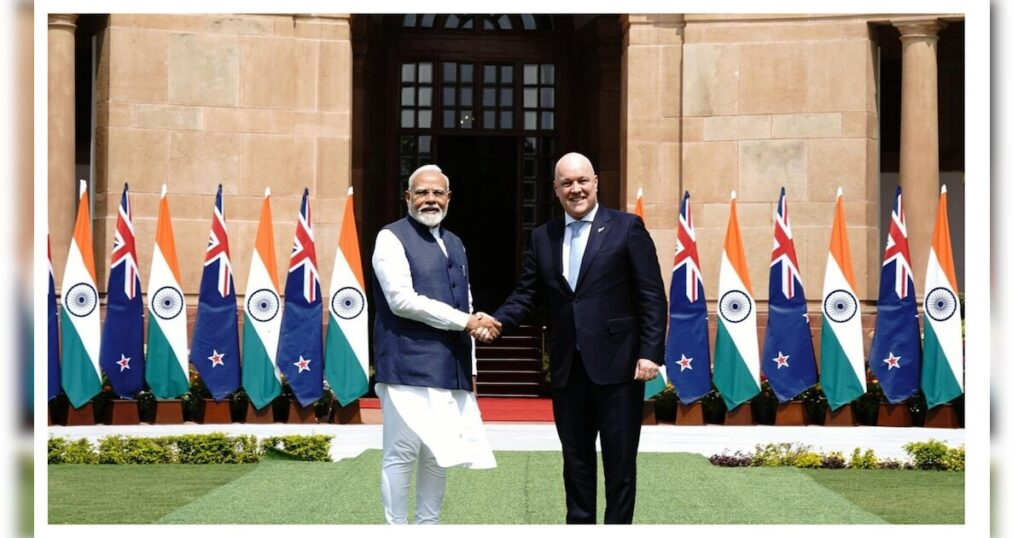NEW DELHI: India and New Zealand have agreed for talks to boost cooperation in digital payments and greater two-way trade and investment during the ongoing visit of New Zealand Prime Minister Christopher Luxon.
A day after both nations revived talks on a proposed free-trade agreement (FTA) after a hiatus of 10 years, Luxon and Prime Minister Narendra Modi held delegation-level bilateral talks on Monday. Both committed to designate senior representatives to steer these negotiations to resolution as soon as reasonably possible.
India’s merchandise exports to New Zealand stood at $535 million in 2023-24, while imports stood at $335.07 million, representing a total trade value of $873 million. The Prime Ministers welcomed sustained trade and investment flows between India and New Zealand. The country is only the 59th largest source of historical foreign direct investment into India, accounting for $87.2 million of inward investments since 2000.
“By leveraging each country’s strengths, addressing their respective concerns, and tackling challenges, a bilateral trade agreement can foster mutually beneficial trade and investment growth, ensuring equitable gains and complementarities for both sides,” a joint statement released after the talks said.
The leaders committed to designating senior representatives to steer these negotiations towards resolution as soon as reasonably possible. Later in the day, Luxon stated that both economies stand to gain from major advancements in artificial intelligence, quantum technology, biotech, and advanced manufacturing while speaking at the Raisina Dialogue.
Both leaders also welcomed the signing of the Authorised Economic Operators Mutual Recognition Arrangement under the aegis of the Customs Cooperation Arrangement signed in 2024, which would facilitate easier movement of goods between the two countries. After updating the bilateral air services agreement, both sides have also agreed to encourage their carriers to commence direct (non-stop) flight operations between the two countries.
The two nations have signed multiple memorandums of understanding. These include cooperation in horticulture and forestry, which will promote knowledge and research exchanges, development of post-harvest and marketing infrastructure, and technical exchanges. The countries are also working on an agreement on earthquake mitigation cooperation between relevant authorities.
Source: Business Standard




 Greenland Election Results Give No Relief To Trump In Realising His Ambition
Greenland Election Results Give No Relief To Trump In Realising His Ambition 